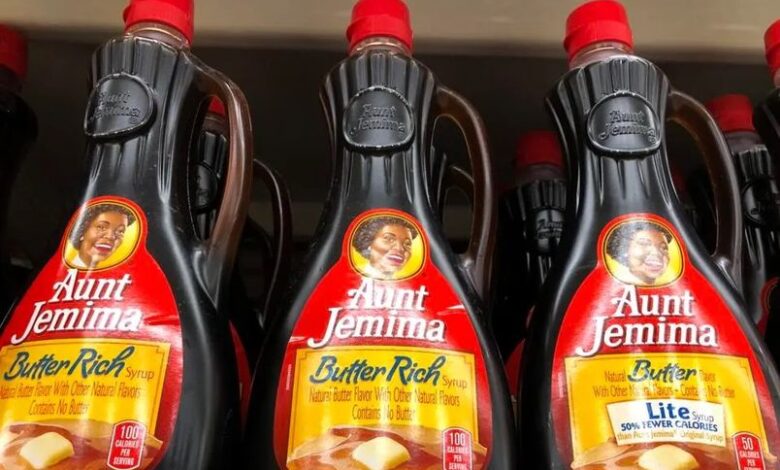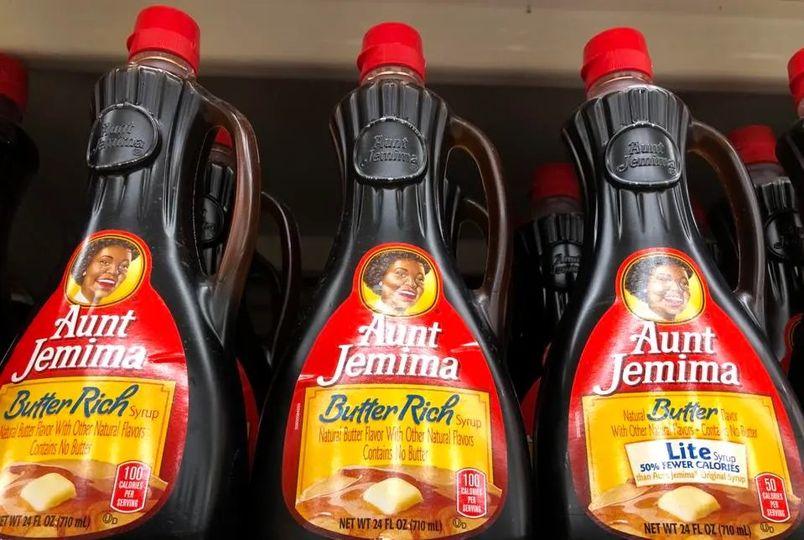“Aunt Jemima’s” great-grandson angry that her legacy is being scrapped: “It’s injustice to my family”

The removal of the beloved Aunt Jemima brand has sparked considerable controversy, particularly from those who believe it diminishes an important piece of history. One of the strongest voices in this debate comes from Larnell Evans Sr., the great-grandson of Nancy Green, the woman who famously portrayed Aunt Jemima. Evans is deeply upset, arguing that this decision erases his family’s significant legacy.

A Personal History with Aunt Jemima
For over a century, Aunt Jemima was a household name, with her image adorning syrup and pancake mix products in kitchens across the United States. The character was initially personified by Nancy Green, a former enslaved woman who became the face of the brand. To Larnell Evans Sr., this isn’t just a name change—it’s an attack on his family’s history. He feels strongly that Nancy Green’s contributions to the Aunt Jemima brand should be honored and not erased from public memory.
Evans is convinced that his great-grandmother helped build a lasting legacy that deserves recognition. For him, the brand wasn’t just a product—it was a symbol of achievement, and removing the name feels like a betrayal of that legacy.
The Backlash Against the Rebranding
When Quaker Oats, the company behind Aunt Jemima, announced that it would change the brand’s name in response to concerns about racial stereotypes, Evans was quick to voice his opposition. He views this rebranding as more than a mere name change—he sees it as a dismissal of the hard work and contributions of his ancestors.
Evans has been vocal in saying, “This is an injustice to my family.” He believes that instead of scrapping the brand, Quaker Oats could have used the opportunity to educate the public about his great-grandmother’s role in shaping the brand, emphasizing the strength and resilience that she demonstrated in building a legacy for her family.
Aunt Jemima’s Complex Legacy
The decision to retire the Aunt Jemima brand was driven by the character’s ties to negative stereotypes and problematic origins. However, for Evans and his family, Aunt Jemima’s history is more complicated. While the character may have been born out of troubling times, Nancy Green’s portrayal also became a symbol of progress for her family. Evans argues that his great-grandmother’s success with the brand provided her an opportunity to rise above her circumstances and create a meaningful legacy.
Evans firmly believes the focus should have been on educating the public about Nancy Green’s story, rather than removing the brand entirely. He sees this as an opportunity to discuss the complexities of history while recognizing the perseverance and accomplishments of African Americans in a time when their contributions were often overlooked.
A Broader Movement and Personal Impact
The rebranding of Aunt Jemima is part of a larger movement aimed at addressing racial injustice and reexamining historical symbols that perpetuate harmful stereotypes. For some, this change is a necessary step toward healing and progress. But for Evans and others, it feels like an erasure of personal history and a severing of ties with their ancestors’ achievements.
While opinions on the rebranding are divided, one thing is clear: Aunt Jemima’s legacy, and the role of Nancy Green in it, will remain a topic of conversation. Evans hopes that in the midst of this debate, people will take the time to understand the full story behind the character, recognizing both the flawed origins and the important contributions of African Americans to American culture.